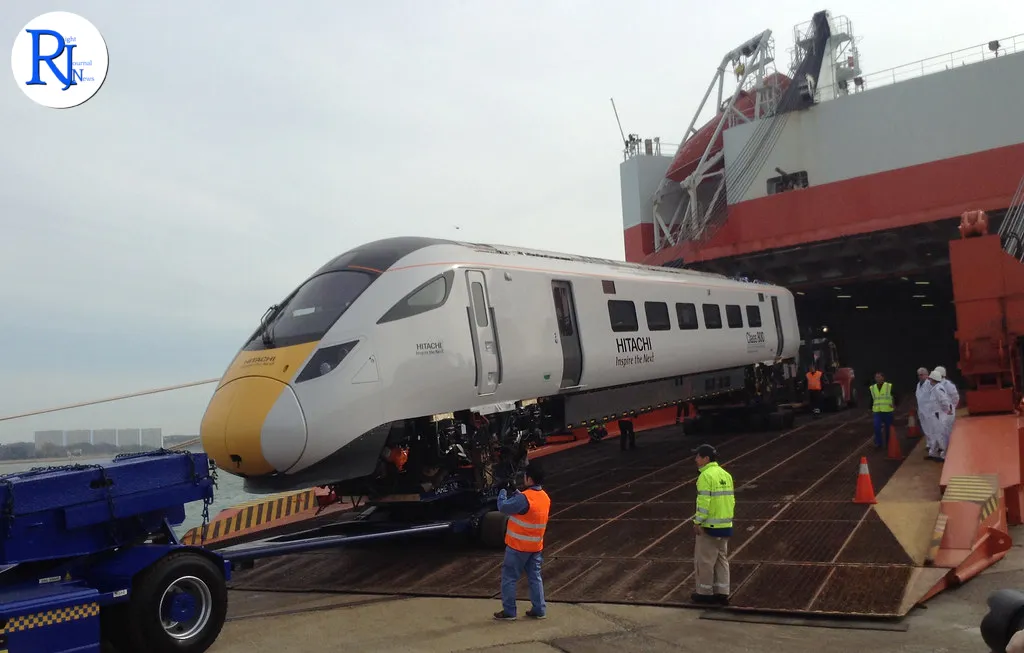The High Speed 2 (HS2) railway project, once hailed as a transformative infrastructure initiative for the UK, now faces mounting criticism from insiders who claim it was “doomed to be a mess.” Industry experts cite systemic issues in the country’s construction and planning sectors as key factors behind the project’s struggles. The contentious debate over HS2’s viability continues to unfold, as stakeholders grapple with the challenges of executing one of Europe’s largest infrastructure undertakings.
The controversy surrounding HS2 has reached new heights, with insiders pointing to the spiralling costs and inefficiencies embedded in the UK’s construction landscape. A prominent insider remarked, “There’s a fundamental problem in the UK with the cost of building anything,” highlighting the broader issues that plague large-scale infrastructure projects across the nation. The project’s complexities have ignited discussions about the country’s planning system, which many believe requires a comprehensive overhaul to better support ambitious ventures like HS2.

Cost Overruns and Financial Mismanagement
HS2’s financial woes have been a focal point of criticism, with costs ballooning far beyond initial estimates. Originally projected at £32.7 billion in 2011, the budget has since skyrocketed, with the most recent estimates suggesting a final price tag of over £100 billion. This dramatic increase has raised concerns about financial mismanagement and the project’s long-term sustainability.
Industry experts attribute these cost overruns to a combination of factors, including inflation, unforeseen construction complexities, and delays. The National Audit Office has repeatedly flagged issues with cost control and project management, urging the government to adopt more stringent oversight mechanisms. “The lack of effective cost management is a significant concern,” noted a senior analyst, emphasising the need for greater accountability and transparency in handling public funds.
Planning System Under Scrutiny
The UK’s planning system has come under fire for its perceived inefficiencies and bureaucratic hurdles. Critics argue that the complex regulatory framework has hindered progress on HS2, causing delays and escalating costs. The lengthy approval processes and frequent legal challenges have further complicated the project’s timeline, prompting calls for reform.
In response to these criticisms, the government has pledged to streamline planning procedures and reduce red tape. However, sceptics remain unconvinced, citing the need for a more radical overhaul to address the systemic issues at play. “We need a planning system that facilitates, rather than frustrates, major infrastructure projects,” argued a leading urban planner, advocating for a more pragmatic approach to future developments.
Environmental and Community Concerns
Beyond financial and planning challenges, HS2 has faced significant opposition from environmental groups and local communities. The project’s route cuts through areas of natural beauty and wildlife habitats, sparking fears of irreversible ecological damage. Campaigners have voiced concerns about the loss of ancient woodlands and the disruption to rural landscapes, demanding greater environmental protections.
Local communities along the proposed route have also expressed apprehension about the impact on their daily lives. Issues such as noise pollution, increased traffic, and property devaluation have fuelled resistance to the project. In response, HS2 Ltd has committed to implementing mitigation measures, including noise barriers and compensation schemes. However, these efforts have done little to placate critics who view the project as an unnecessary intrusion.
Government Response and Future Prospects
In light of the ongoing challenges, the government has reaffirmed its commitment to HS2, citing its potential to boost economic growth and connectivity. Proponents argue that the high-speed rail network will reduce journey times, alleviate congestion on existing rail lines, and stimulate regional development. “HS2 is vital for the UK’s future prosperity,” stated a government spokesperson, emphasising the project’s strategic importance.
Despite these assurances, the future of HS2 remains uncertain. The project continues to face scrutiny from both the public and political spheres, with some calling for its cancellation or downsizing. The debate over HS2’s feasibility and value underscores the broader challenges of delivering large-scale infrastructure in the UK, highlighting the need for systemic reforms to ensure the success of future initiatives.
As the HS2 saga unfolds, the government must navigate a complex landscape of financial, environmental, and community considerations. The outcome of this contentious debate will not only shape the future of high-speed rail in the UK but also set a precedent for how the country approaches major infrastructure projects in the years to come.

